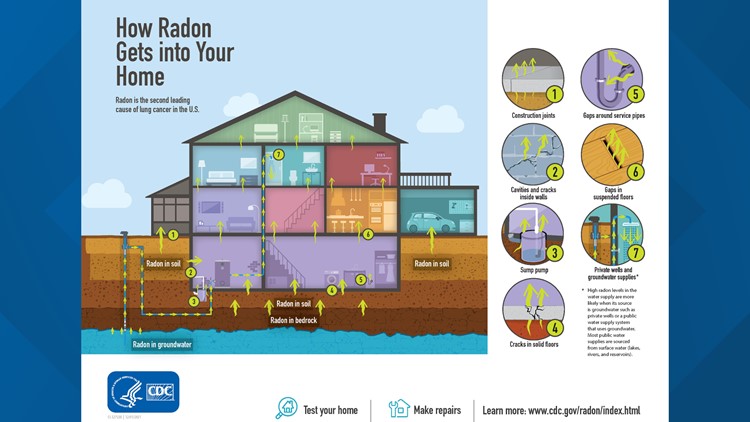BUFFALO, N.Y. — The week of January 24 through January 28 is Radon Awareness Week, and health officials are providing tips on how to protect you and your family.
What is radon?
The CDC says radon is an odorless and invisible radioactive gas that is naturally released from rocks, soil and water. That gas can can get trapped inside your home and buildings, and build up in the air.
If you breath in radon over a long period of time, it could cause lung cancer. Radon is the second leading cause of lung cancer, after smoking.
The only way to detect radon is by testing. You can contact your state radon office for testing or you can purchase a test kit in a hardware store or online.
The CDC says there is no known safe level of radon, but you should aim to have the lowest levels in your home. The U.S. Environmental Protection Agency (EPA) recommends fixing your home if radon levels are above 4 picoCuries per liter of air (pCi/L).
You can keep the radon levels low by increasing the air flow into your home, and using fans and vents to circulate air.
If you have any cracks in your walls or floors, you should seal them with plaster, caulk or other crack-sealing material.
If you have a crawl space under your home, you should cover the ground with a high-density plastic sheet. You can also install a vent pipe and fan to blow the radon from under the sheet and vent it outdoors.
For more information on radon, check out the CDC's website.



